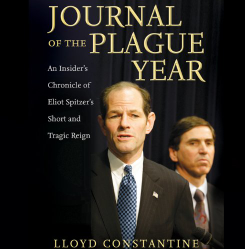Those surprised by the tiny proportion of Republicans abandoning Trump in the wake of the Ukrainian week that was, would be wise to revisit his January 23, 2016 observation about the loyalty of his base. Trump’s insight, since paraphrased, embellished and diluted bears precise quotation:
“I could stand in the middle of Fifth Avenue and shoot somebody and I wouldn’t lose any voters, O.K.? It’s like incredible”

Senator Lindsey Graham
We have come to learn how well Trump understood the base. But something else about their orientation has occurred or simply been revealed. The base, since joined by many mainstream Republicans and officeholders like Lindsey Graham, Kevin McCarthy and Jim Jordan now support Trump because he is a criminal not merely in spite of his pervasive and burgeoning criminality. Proof, context and reason for this is best understood and explained by conservative commentators who served in prior Republican administrations.

Peter Wehner
Peter Wehner, a high-level veteran of the Reagan, Bush 41 and Bush 43 administrations and a Senior Fellow at the Ethics and Public Policy Center, a right-wing think tank, explains the persistent support for Trump from electeds like Senator Graham. Prior to the 2016 election, Graham remarked that Trump was “crazy” and “unfit for office.” But after the election and those characterizations were proven accurate, if understated, Graham became one of Trump’s most stalwart apologists.
Senator Graham and other Republican electeds no longer are merely defending Trump, but themselves. Wehner points to and quotes the psychology of group cognitive accommodation to explain why conservatives and evangelicals first defend, then applaud and finally emulate Trump behavior that is directly opposed to what they believed they believe in. He writes that “many Republicans ‘are nearly unrecognizable versions of themselves pre-Trump. . . its less about defending Trump, they are defending their own defense of Trump.’” Wehner continues that “many in Mr. Trump’s party not only refuse to challenge his maliciousness; they have adopted his approach.” As depressing as Wehner’s diagnosis seems, it leaves room for hope that the same “group think” dynamic can reverse and reembrace the principles and ethics of not merely rhetorical but truly practicing conservatives and Christian evangelicals.

Tony Fratto
Tony Fratto, another conservative insider gives a much gloomier diagnosis and prognosis. Fratto, was Assistant Treasury Secretary and later a top spokesperson in the Bush 43 Whitehouse. He focuses on Trump’s war on immigrants and family unification-based immigration, which was the core and decisive argument in Trump’s candidacy. Those racist and discriminatory policies continue to have strong support among the working class, white ethnics and others in his base. In apparent despair, Fratto says it’s time for that base to stop saying they believe that “America is a nation of immigrants” and for the second and third generation among them to admit that they want to “pull up the ladder” that their ancestors used to enter America. In Fratto’s view the base elected a man that validated the prejudices they had already embraced.
 Fratto’s dismal view suggests that Trump is on to something when he warns of a “civil war-like fracture” if and when he is removed from office. The base that has tolerated, indeed applauded, conduct far worse than a shooting on Fifth Avenue, maybe looking to mix it up. Perhaps you have been present when one of many biker groups come rumbling through town blasting horns and sporting Trump and MAGA signage.
Fratto’s dismal view suggests that Trump is on to something when he warns of a “civil war-like fracture” if and when he is removed from office. The base that has tolerated, indeed applauded, conduct far worse than a shooting on Fifth Avenue, maybe looking to mix it up. Perhaps you have been present when one of many biker groups come rumbling through town blasting horns and sporting Trump and MAGA signage.
We are inclined to think that Peter Wehner’s analysis and implicit prediction is more accurate. That the collective cognitive accommodation that has most Republicans defending Trump is a temporary state. That at some point something like the collapse of support for Nixon that occurred in the summer of 1974 will occur for Trump later this year or early next. Even hopeless liberals can be hopeful.



Regretfully this seems to be too true. Hoping for a change.